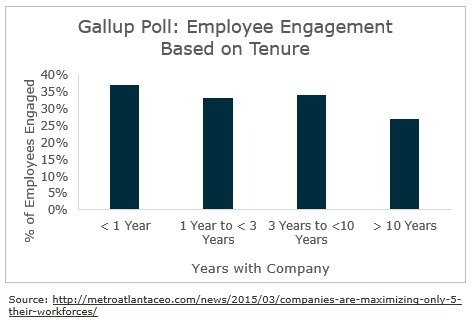High employee retention in insurance companies is often considered a positive sign for a company. Many business owners feel high retention numbers indicate that their employees feel valued, supported, and satisfied. It’s natural to make retention a goal, particularly if your firm has been successful.
However, in the insurance industry, distinguishing between good and bad employee retention is crucial, as retention can be overrated beyond a certain point. Are people getting promoted and progressing on goals? Are producers bringing in new business and supporting growth? Or are they just sitting on their book of business and doing the bare minimum? What kind of example do they set for other employees? There are various talent acquisition strategies you can implement before crossing the bridge of retaining employees, and while the insurance industry boasts a high retention rate, here’s why it might be time to change that.
Evaluating Employee Retention in the Insurance Industry
In insurance firms, releasing an employee becomes necessary when they are poor performers, violate policies, or engage in unethical activities. But there are many other, less obvious reasons to release someone. If you consistently see these behaviors, it may be time to terminate:
- Change adverse – You bring in a new process or strategy, and their immediate reaction is negative. Or they just refuse to enact a policy or take on a new client. Finding someone who can drive your business forward may be the time in these cases.
- Stagnant performer – This is different from a poor performer. A stagnant employee typically stays in one position for many years, avoids challenges, and doesn’t seek out fresh ideas. They may seem like decent employees, but consider whether they drive growth and innovation. If not, let them go and promote the newer employee who exceeds your expectations. It’s a wonderful way to retain the best of your staff and demonstrate recognition and opportunities for advancement.
- Cultural mismatch – People who erode your culture and cause internal turmoil must go. Even if they’re top performers or your clients like them, keeping the office jerk has far greater negative impacts. A Forbes survey found that 25% of employees quit because of a difficult co-worker, and experts point to poor office culture as a cause of the Great Resignation.
- No response to coaching – If you’ve tried to help an employee improve with a PIP, candid conversations, or mentoring, and they’re still full of excuses, that’s a telltale sign that it’s not working out. Plus, you can point to those efforts during the termination discussion, so it’s clear you’re not making this decision on a whim.
Identifying Stagnant Performers in Insurance Firms
Tenure alone isn’t the mark of an engaged, productive worker. According to a Gallup poll, employees who have been with a company the longest are the least likely to be engaged at work. Call it complacency, apathy, or lack of motivation – it can be infectious to others and needs to be addressed. Implementing new talent development practices and determining how to reengage employees may be useful. Make it clear that what got them hired isn’t enough to keep them employed. Above all, it’s good leadership to set goals and hold all employees to expectations.

Recognizing Cultural Mismatches in Insurance Teams
It feels right to keep someone when you’re considering termination for many reasons. And this doesn’t just apply to tenured employees. Many employers are hesitant to release some early when they notice warning signs. Have you used any of these excuses? Here are some ways to overcome them:
- Reputational risk – If you hire someone, you may think it reflects poorly on you to fire them. The truth is, it’s more damaging to keep them around. Employees appreciate when their leader removes challenging colleagues to create a stronger culture.
- Fear – Some managers fear potential litigation, industry badmouthing, and even physical confrontation. Don’t let someone bully you into running your business their way instead of the right way. Just because someone threatens a lawsuit doesn’t mean they’ll follow through or be successful.
- Cost – Recruiting and training take time and money, so many business owners feel keeping average performers is more economical. But in the long run, keeping the wrong people impacts your bottom line. According to a Harvard Business School study, firing a toxic worker can save a company $12,500.4 You may start to lose good staff and be forced to recruit anyway.
- Guilt – Perhaps the person is genuinely nice, has become a friend, or is facing financial difficulties. If you feel guilty about terminating someone, know that you may be doing them kindness. Now, they can find the right role or company rather than continue to flounder.
- Loss of institutional knowledge – Because employees have a wealth of knowledge, skills, or client contacts, managers fear losing information once they’re gone. Reskill or upskill a current employee, start recruiting immediately or impart a documentation process. You must have a plan that doesn’t depend on one person.
Rest assured, tenured employees aren’t inherently bad. Some are truly model employees who enhance the culture, drive process improvement, and mentor greener employees. Studies show that employees with tenure, enthusiasm, and skill perform 18% higher than the average employee. Candidates want to see a path for growth, and longer-term employees show that. With that said, retention is overrated because it is a bad approach for retention’s sake. If your overall employee retention rate is 3-5 years, but your culture is strong, your business and people are growing, and your clients are happy – you’re doing it right. If not, it may be time to find new talent.
